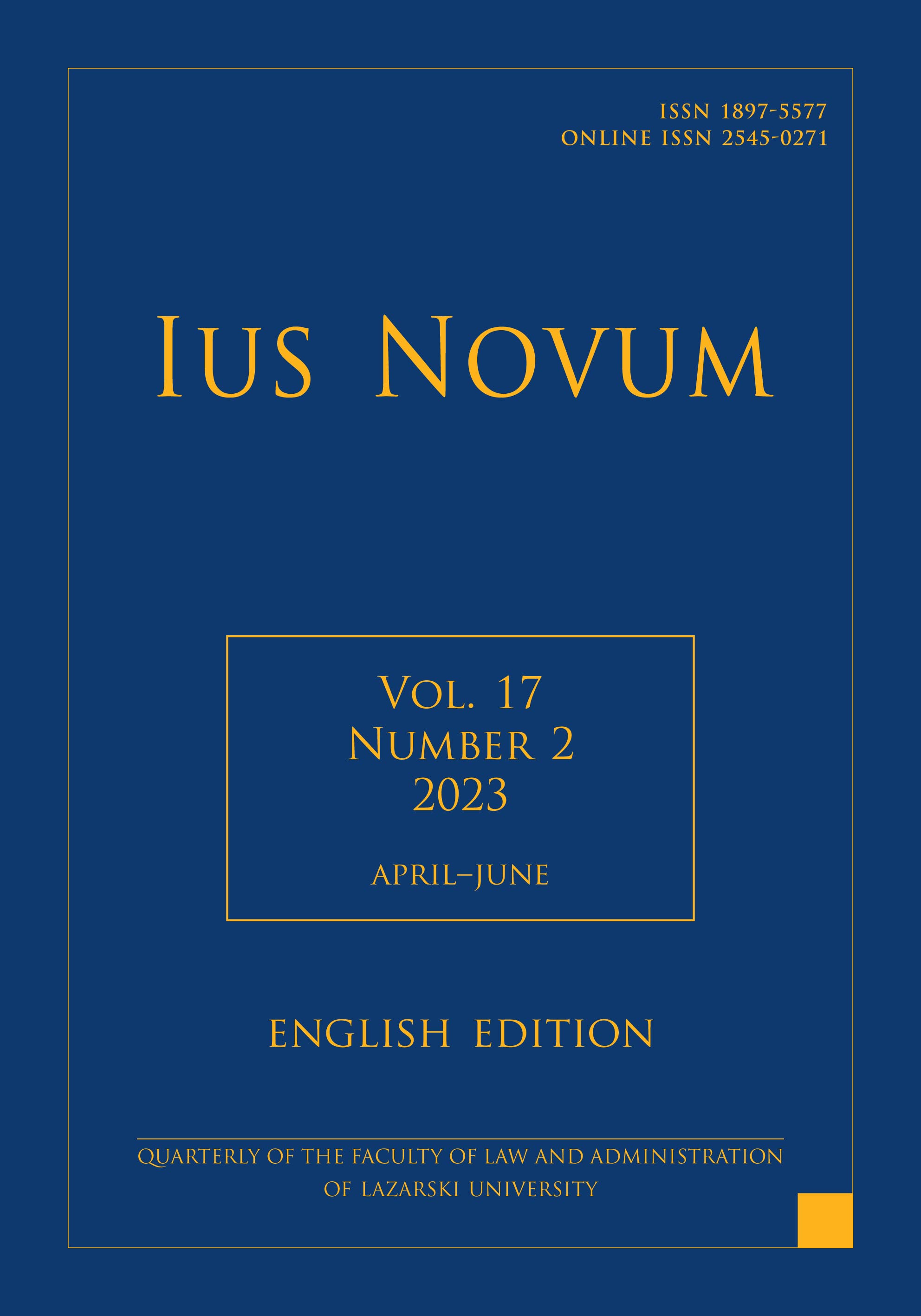Submission of the point of law which raises serious doubts in civil proceedings for the resolution by the Supreme Court
Submission of the point of law which raises serious doubts in civil proceedings for the resolution by the Supreme Court
Author(s): Małgorzata Sekuła-LelenoSubject(s): Civil Law
Published by: Oficyna Wydawnicza Uczelni Łazarskiego
Keywords: points of law; Supreme Court; uniformity of the case-law;
Summary/Abstract: The institution of questions of law, as a result of which the court ruling in the case is bound by the view of the Supreme Court expressed in its resolution, is an exception to the constitutional principle of subordination of judges solely to the Constitution and statues (Article 178(1) of the Constitution of the Republic of Poland). The point of law which raises serious doubts because divergent interpretation of the same provision exist in the case-law could be submitted when in the opinion of the appellate court each of these interpretations can be adopted in view of its significant legal arguments, and neither the position of the jurisprudence nor the doctrine of law explains which interpretation should be chosen. The point of law submitted to the Supreme Court for resolution under Article 390(1) of the Code of Civil Procedure must meet three basic requirements. Firstly, the point of law must be of an abstract nature and concern the interpretation of legal provisions, as it is unacceptable to present to the Supreme Court a question of law simply to get an answer on how to settle the case. Secondly, the point of law needs to concern a legal doubt which needs to be clarified in order to examine the legal remedy; in other words, in order to use the right set forth in Article 390(1) of the CCP, a link must exist between the presented point of law and a decision to be made on the merits of the case, and such link needs to be demonstrated through the juridical consistency of the point of law formulated at the outset and the reasons thereto, and through the proper reference to the facts of the case in such generally defined question of law. Thirdly, the point of law to be resolved needs to concern a legal issue which raises serious doubts; if ordinary doubts arise, the court of second instance needs to settle them on its own. The significance of the issue or the discrepancies in the jurisprudence and literature regarding the ways of its resolutions are not per se independent premises for raising a question of law.
Journal: Ius Novum
- Issue Year: 17/2023
- Issue No: 2 ENG
- Page Range: 135-151
- Page Count: 17
- Language: English

